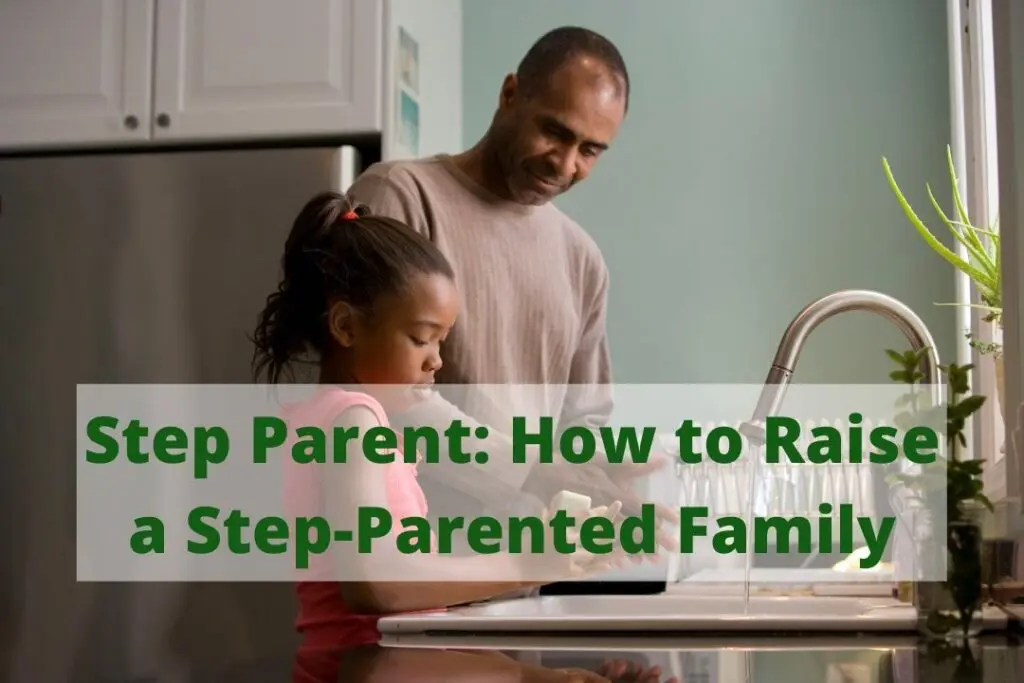How to comfort a child who misses a parent is a daunting task. Missing a parent can be very hard for a child. Here are some tips on how to comfort them:
- Let them know that it’s okay to feel sad, and that you understand how they feel.
- Tell them stories about your own experiences of missing a parent, and how you coped with those feelings.
- Help them to write or draw about how they’re feeling, and encourage them to express their emotions.
- Spend time with them and give them lots of hugs and kisses.
- Let them know that you’re always there for them, no matter what.
Read : 50 Qualities of a Good Parent You Need to Know
Missing a Parent? How to Comfort Your Child
It’s never easy when a child misses a parent. Here are some ways that you can help comfort your child:
-Make crafts for the other parent. This allows the child to connect with the missing parent in a tangible way.
-Encourage positive thoughts about the other parent. This will help the child feel more connected to the parent who is missing.
-Help them find support from others who are going through the same thing. This can be a great way for the child to connect with others and find strategies for coping with the loss.
-Describe what the other parent is doing. This can help the child feel closer to the parent and understand what they’re going through.
-Offer a visual cue for the parent’s return. This could be anything from a photo to a drawing.
-Let them know you’re always there for them. No matter what happens, the child can always rely on you to be there for them. This can provide a sense of comfort and security during a difficult time.
How to comfort a child who misses a parent
It is possible that your youngster is also missing a parent who is gone at work, whether the schedule is new or has been in place for a long time already. Perhaps your companion has been absent for a long period of time.
No matter what the cause, it always comes down to our children not knowing what to do without one of their parents. In the absence of one of his parents, what can you do?
How to comfort a child who misses a parent?
To help you get started, here are some helpful hints.
1. Offer items that belong to the missed parent
One way to help a child feel closer to a parent who is missing is to offer them some of the belongings of the parent who is gone. This could be anything from a photo to a favorite piece of clothing. It can be comforting for a child to feel like they have a piece of their missing parent with them.
If you have any of the missing parent’s belongings, try to keep them in a safe place where the child can access them easily. You may also want to talk about the belongings with the child, and explain why they’re important to them. This can help the child feel closer to the parent who is missing and understand what they’re going through.
2. Make crafts for the other parent
How to comfort a child who misses a parent, make craft for the other parent.
If the child is missing one parent, you can help them feel closer to that parent by making crafts for them. This could be anything from drawing a picture to making a card. It can be a fun way for the child to express their emotions, and it also allows them to connect with the missing parent in a tangible way.
You can either make the crafts yourself or help the child make them. If you make them yourself, be sure to include a note that says “Made with love by __________” (the child’s name). This will let the child know that you’re thinking of them and want to help them feel better.
3. Encourage positive thoughts about the other parent
It’s important for a child who is missing a parent to have positive thoughts about that parent. This will help them feel more connected to the parent who is missing and make it easier for them to cope with the loss.
You can encourage positive thoughts about the other parent by talking about the good things they’ve done, sharing memories of them, or sending positive thoughts their way. You can also help the child to write a letter to the other parent, telling them how much they love and miss them. This is a great way for the child to express their feelings and connect with the parent who is missing.
4. Help them find support
How to comfort a child who misses a parent, help children to find support.
If the child is missing a parent, it can be helpful for them to find support from other people who are going through the same thing. This could be a friend, relative, or therapist.
Talking about how they’re feeling and sharing their experiences with others can help the child feel less alone and more connected to the world. It can also be a great way to find strategies for coping with the loss.
If you know of any support groups for children who are missing a parent, be sure to let the child know about them. This can be a great way for them to connect with others who are going through the same thing.
5. Describe what the other parent is doing
It can be reassuring for a child who is missing a parent to know what the parent is doing. This can help them feel closer to the parent and understand what they’re going through.
You can describe what the other parent is doing by sending updates, sharing photos, or writing letters. You can also tell the child stories about how the other parent is doing. This will help them feel connected to the parent who is missing and understand what they’re going through.
6. Offer a visual cue for the parent’s return
If the child is missing a parent, it can be helpful to have a visual cue for the parent’s return. This could be anything from a photo to a drawing. It can help the child feel more connected to the parent who is missing and make it easier for them to cope with the loss.
You can offer a visual cue for the parent’s return by framing a photo of the two of them together or putting up a drawing that the child made. You can also keep any belongings of the missing parent in a special place so that the child can see them easily. This will help remind them that the parent is coming back soon.
7. Let them know you’re always there for them
One of the most important things you can do for a child who is missing a parent is to let them know that you’re always there for them. You can do this by talking to them, sending letters, or visiting them.
No matter what happens, the child can always rely on you to be there for them. This can provide a sense of comfort and security during a difficult time.
8. Contact the other parent when possible
If the child is missing a parent, it can be helpful for them to contact the other parent when possible. This could be through letters, emails, or phone calls.
It can help the child feel closer to the parent who is missing and understand what they’re going through. It can also give them a chance to ask questions about the other parent’s experiences.
If the child is unable to contact the other parent, you can do it on their behalf. This can be a way for the child to stay connected to the parent who is missing.
No matter what happens, the child can always rely on you to be there for them. This can provide a sense of comfort and
9. Be patient when your child is being difficult
It’s normal for a child who is missing a parent to act out or be difficult. They may be angry, sad, or scared. You may need to be patient with them as they work through these feelings.
The most important thing you can do is provide love and support. Let them know that it’s okay to feel how they’re feeling, and offer comfort whenever possible.
Remember that this is a difficult time for the child and they will need your patience and understanding.
10. Address and label your child’s emotions
When a child is missing a parent, it’s important to address and label their emotions. This will help them understand what they’re feeling and how to cope with it.
You can do this by talking to them about the emotions they’re experiencing. You can also ask them how they’re feeling and offer support.
If the child is unable to express their feelings, you can help them do so. This can be done by giving them a place to write down how they’re feeling or drawing pictures about how they’re feeling.
It’s important for the child to have a way to express their emotions, and addressing and labeling them is a great way to do that.
11. Stay connected to your child
It’s important for the child who is missing a parent to stay connected to their friends and family. This can help them feel supported during a difficult time.
You can help keep the child connected by talking to them about what’s going on in their life, sending letters or emails, or visiting them.
No matter what you do, make sure to stay connected to your child. They need your support more than ever during this time.
12. Don’t Take It At Face Value
When a child is missing a parent, they may say things that don’t make sense. This is because they’re working through their emotions and might not be able to express themselves clearly.
Don’t take everything the child says at face value. Instead, try to understand what they’re trying to say and how they’re feeling. This can help you provide the appropriate support.
It’s also important to remember that the child may not want to talk about the parent who is missing. Respect their wishes and give them time to open up when they’re ready.
13. Seek Professional Help If Necessary
If the child is struggling to cope with the loss of a parent, it’s important to seek professional help. This can be done through therapy or counseling.
A professional can help the child work through their emotions and provide support during this difficult time. If you feel like your child could benefit from this, don’t hesitate to seek help.
Missing a parent can be a difficult experience for a child. By following these tips, you can help them cope and feel loved and supported.
14. Have Empathy for Your Child’s Emotions
It’s important to have empathy for the child’s emotions. You may be feeling a range of emotions yourself, such as sadness, anger, or frustration.
Remember that it’s okay to feel these things, but you need to put them aside when helping your child. They need your support and understanding, not your emotions.
Be there for your child and let them know that you understand how they’re feeling. This can provide a lot of comfort during a difficult time.
15. Stand Your Ground Peacefully
When the child is angry or acting out, it’s important to stand your ground peacefully. This means not yelling or becoming angry yourself.
Yelling or becoming angry will only make the situation worse and could cause the child to act out even more.
Instead, try to remain calm and understanding. This will help the child feel supported and loved.
It’s difficult to deal with a child who is missing a parent, but by following these tips, you can make it a little bit easier. Be patient and understanding, and most importantly, be there for your child.
16. Talk to Your Co-Parent
If you’re divorced or separated from the parent who is missing, it’s important to talk to your co-parent. This can help keep the child’s life as normal as possible.
You can talk about how the child is doing, what they’re experiencing, and how you’re both helping them cope. It’s also a good idea to coordinate parenting time so the child isn’t missing either parent.
If you’re not able to talk to your co-parent, try to find another adult who can help fill that role. This could be a grandparent, aunt, or uncle.
By talking and coordinating parenting time, you can help the child cope with the loss of a parent.
17. Keep Your Composure
It’s important to keep your composure when helping a child who is missing a parent. This means remaining calm and supportive, even in the face of difficult behavior.
If you lose your temper or become emotional, the child will be more likely to do the same. This will only make the situation worse.
Instead, try to be patient and understanding. This will help the child feel safe and loved.
It’s difficult to deal with a child who is missing a parent, but by following these tips, you can make it a little bit easier. Be patient and understanding, and most importantly, be there for your child.
18. Pay attention to other possible factors
While it’s natural to want to focus on the child and their feelings, it’s important to pay attention to other possible factors. How to comfort a child who misses a parent?
For example, the child may be acting out because of a change in routine or because they’re not getting enough attention. There may also be stressors in the child’s life that are causing them to act out.
By paying attention to other possible factors, you can better help the child cope with the loss of a parent.
Conclusion
When a youngster longs for a parent, it’s difficult for everyone involved. How to comfort a child who misses a parent. there are multiple tips for parents for help.
Your child is upset and confused because of your partner’s absence. For too long, your spouse was gone from you and the two of you, and he or she feels awful about it. On top of that, you have to help your child deal with his or her feelings while also missing your partner and managing the day-to-day home operations.
These feelings can be described to him so that he realises that they are normal and will pass. Take it easy on him, because now is the time he needs your patience the most.
As he’s away, explain to him what he’s doing so that he knows he’s doing essential job and not just being away from you. You could ask him to leave a particular token for your youngster before he leaves.
For now, help him with crafts and give him a visible indication of when he will return. Be careful to stay in touch with your spouse while he is away so that you can share any anecdotes or assurances he may have for your child.




